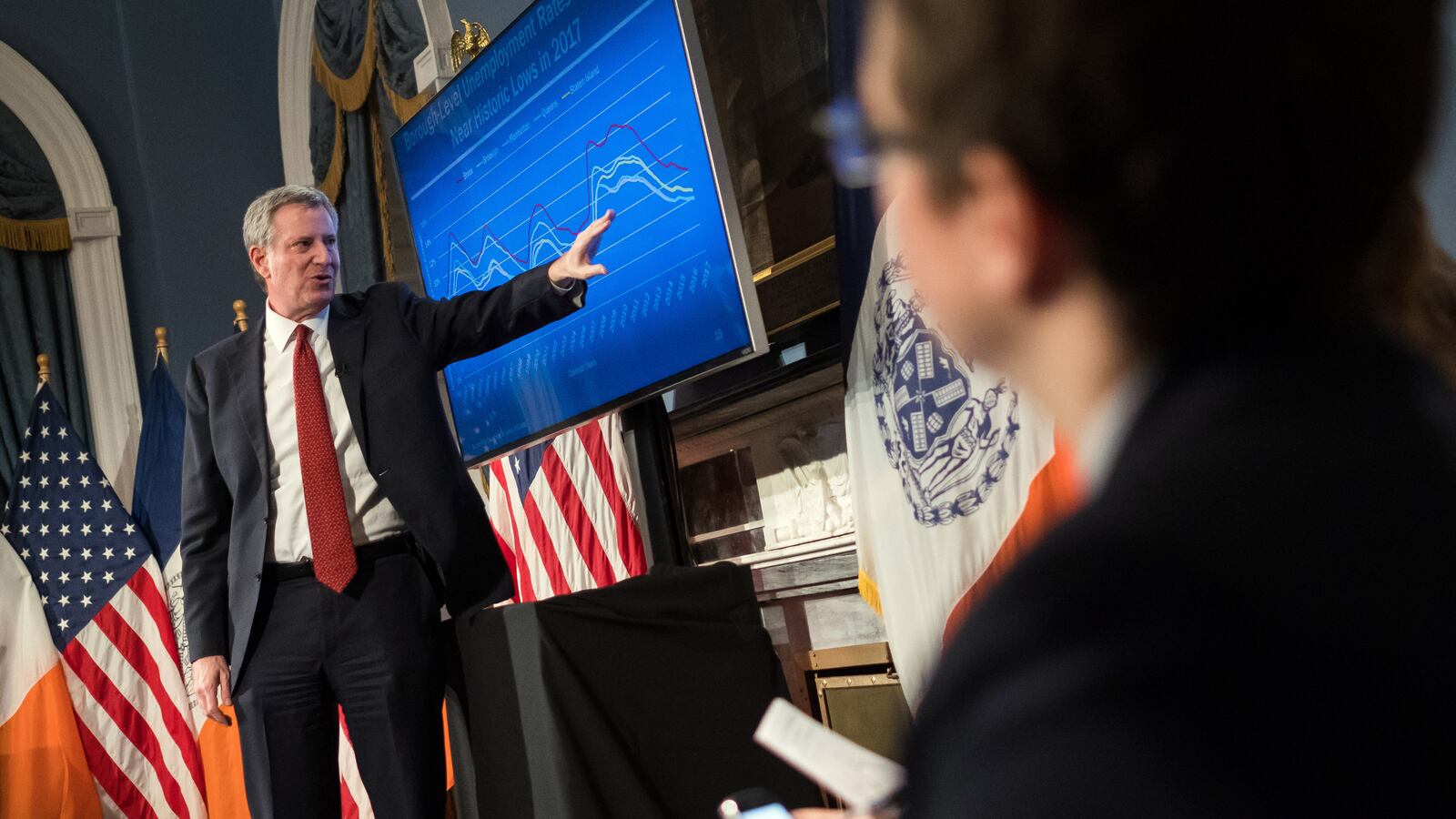New York City is speeding up its expansion of prekindergarten for three-year-old students, despite looming budget threats from Albany and Washington D.C., Mayor Bill de Blasio said Thursday.
The mayor announced the $46 million plan to expand his “3-K” program during during a press briefing, where he unveiled his $88.67 billion budget preliminary budget for the coming fiscal year.
Still, de Blasio warned about tough times ahead for school funding — which he pinned partially on his rival, Gov. Andrew Cuomo. The governor’s proposed budget leaves the city with $200 million less in school funding than city officials had projected, and force it shoulder additional costs relating to charter schools and special-education services, de Blasio said.
The bigger threat to the city’s budget will come from Washington, with up to $700 million at risk, according to city projections. In response, the mayor touted $900 million in savings across fiscal years 2018 and 2019 through a partial hiring freeze and agency and debt-service savings.
“This budget process proceeded against a backdrop of tremendous uncertainty,” de Blasio told reporters. “We said to ourselves, as we embark on this process, that we would have to be very careful, very sparing in the actions that we took.”
Here’s a breakdown of the mayor’s budget:
Four new 3-K sites. De Blasio’s plan says that 12 districts will provide free preschool for 3-year-olds by 2020 — four more than he originally planned. The new districts are 5 and 6 in Upper Manhattan, 12 in the Bronx, and 16 in Bedford Stuyvesant, Brooklyn. Education department officials said the city plans to fund these districts on their own, but in order to expand 3-K to every school district, the city will need to tap into state and federal funds.
“We want to move aggressively with 3-K,” de Blasio said. “We decided that we could go farther, more quickly.”
Shifting costs from Albany to New York City. The $10.5 billion in school funding that Gov. Cuomo has proposed giving New York City falls far short of what the city expected, amounting to a “very substantial cut” that would “hold us back,” de Blasio said.
He also raised concerns about $144 million in additional costs the city would have to shoulder for charter schools under the governor’s proposal and an extra $65 million the city would have to find for special education services.
A spokesman for the governor’s office said the reduction in special-education funding is much smaller than the city is projecting. State officials also said the state is giving the city a $248 million boost in school funding this year, along with increases in Medicaid funding and tax revenue.
“Calling this significant increase a cut is disingenuous and the City should check its math,” said Morris Peters, spokesman the state budget office.
The budget lacked money for homeless students. Similar to last year, the mayor left out about $10 million in his preliminary budget plan for social workers that help students living in shelters. The decision comes as the city’s homeless student population continues to swell, reaching one in 10 students during the 2017 school year. Advocates quickly blasted the decision, saying the social workers provide “critical support” to these students.
“We are appalled that the Mayor’s Preliminary Budget would eliminate funding for the DOE Bridging the Gap social workers for students living in shelters,” said Kim Sweet, executive director of Advocates for Children of New York. “Just yesterday, while testifying in Albany, Chancellor Fariña highlighted these social workers as a key accomplishment.”
But de Blasio said, just like last year, the city would find additional funding for homeless students before the budget is finalized.
“The strategic goal has not changed, we’re going to be there for those kids,” he said. “Whether the current design and the current cost is right is what we’re not sure about.”

